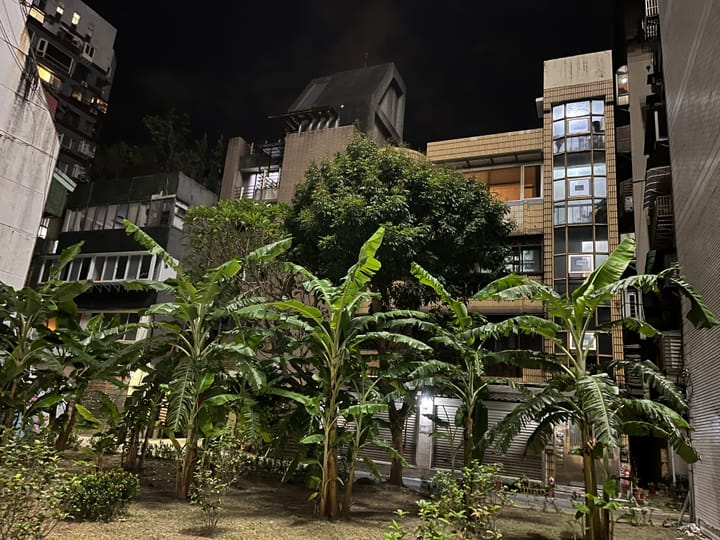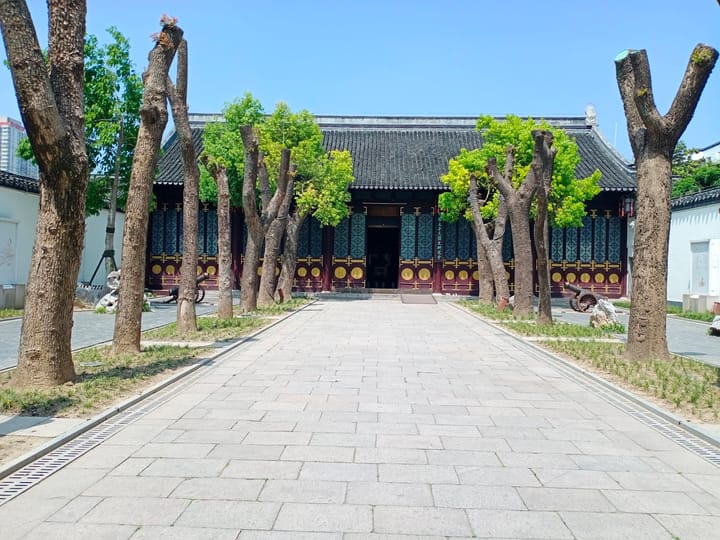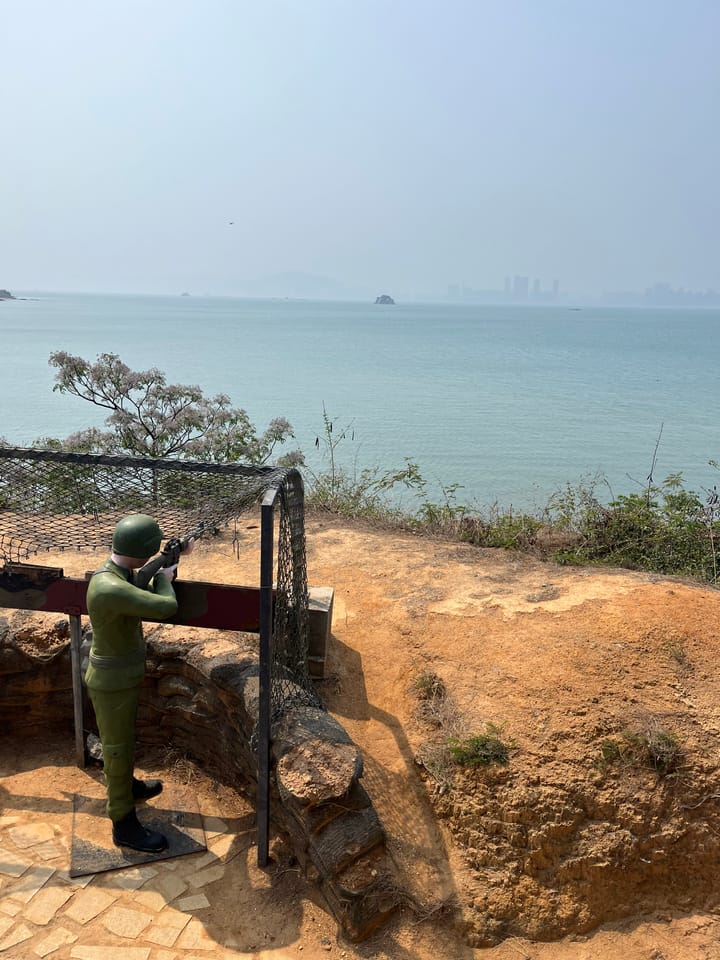#12 It's Not Goodbye, It's "See You Later"
Is it fair to say, after a year abroad, that I am the same? Anyone who has studied or lived abroad has probably returned home with a similar sense of confusion as to how to sort all that time away.
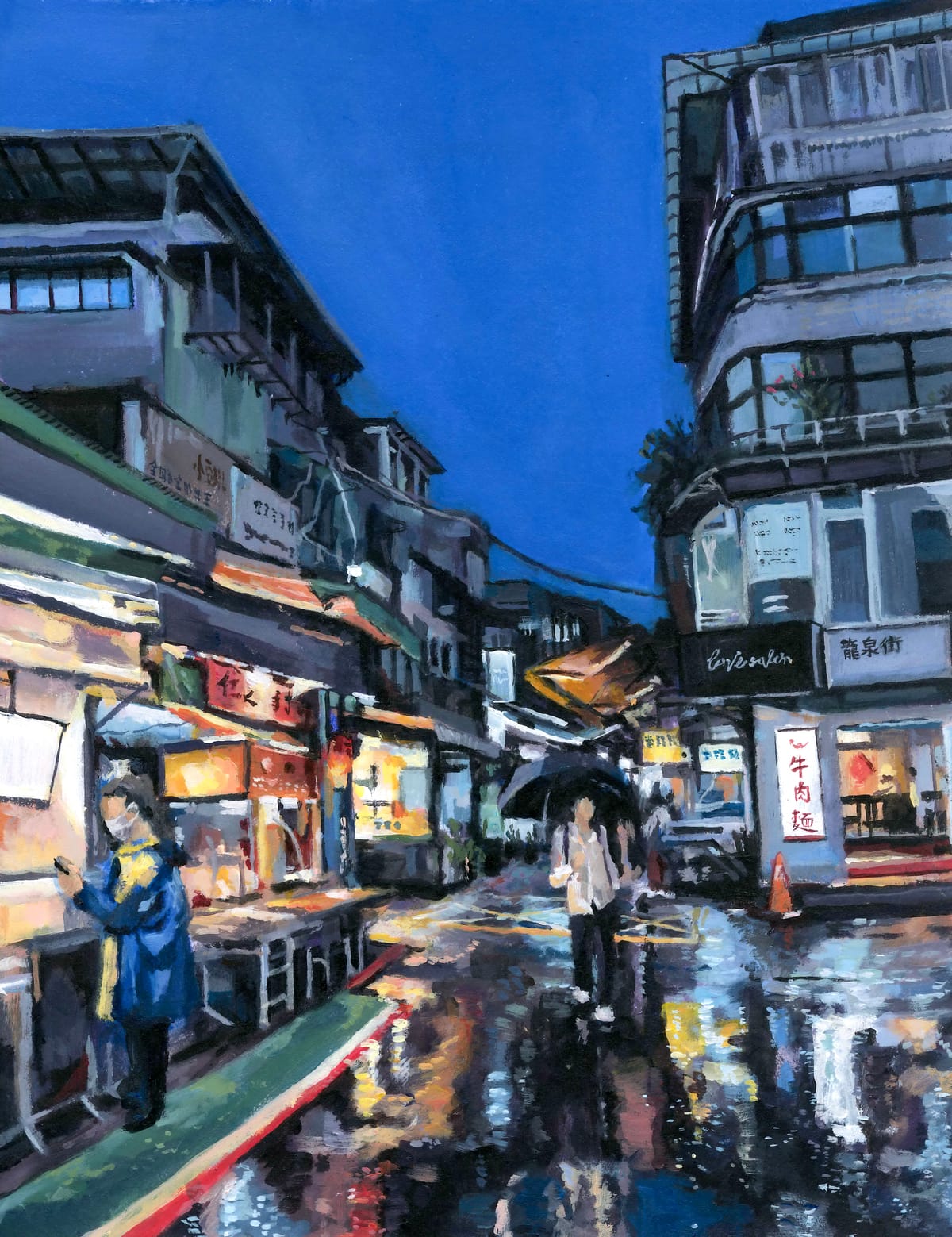
The philosopher Agnes Callard has a provocative essay about the wisdom (and folly) of travel that I read a few months before flying to Taiwan. For her, the kind of "made for Instagram" travel that many upper-class people do is a prettified, if ultimately superficial, way to seem classy and pass time. There is no grand lesson to be found at the end of a travel journey.
"The traveller departs confident that she will come back with the same basic interests, political beliefs, and living arrangements," Callard writes. "Travel is a boomerang. It drops you right where you started."
I suppose that is one way of saying: I made it back from Taiwan.
Exactly one year—to the day!—after I landed in Taoyuan International Airport, I took a sleeping pill, made do with a middle seat, and boarded a flight home to New York. Sixteen hours later, I was home. And all that was left to do was sort out what the past year had been and what, if anything, it meant.
Callard was right about some things. I left for Taiwan a degenerate Philadelphia sports fan with an annoying habit of retelling the same stories and botching the second tone in Mandarin Chinese. I returned home with all those qualities intact, though I'd safely say my second tone improved!
Is it fair to say, after a year abroad, that I am the same? That this experience changed nothing at my core? It ultimately isn't for me to say. Anyone who has studied or lived abroad has probably returned home with a similar sense of confusion as to how to sort all that time away.
While in Taiwan, my roommates and I would joke—sometimes with glee, other times less so—about how this experience "was not real life." Eat a $1 beef noodle soup? "THIS ISN'T REAL LIFE!" we'd exclaim. But, in a deeper sense, that remark also reflected our awareness that this experience had an expiration date. At some point, we would go back to doctor's appointments and graduate school applications—the stress of finding whatever the next thing is. Weekends of travel and new food would fade. The fun of practicing a new language, even developing a new personality in that language, would not last.
Big moments of transition have always been a source of stress for me, but coming back from abroad was something different. This wasn't something new. It was something old—like pressing "play" after a year of being on "pause." There's a beauty in that: the ability to see family and friends who I haven't seen in months. And, of course, there is a sadness too.
Back in September, I blogged about Italo Calvino's majestic book Imagined Cities, which in its description of half-realized or magical cities, served as a useful metaphor for how I (as a foreigner with bad Chinese) would struggle to make a home in place that was not meant for me and whose connection to my life would always be temporary.
Calvino, who conjures a fictionalized version of Marco Polo, fondly remembering his hometown of Venice, writes:
"Memory's images, once they are fixed in words, are erased," Polo said. "Perhaps I am afraid of losing Venice all at once, if I speak of it. Or perhaps, speaking of other cities, I have already lost it, little by little."
The experience I had of Taipei was never going to be that of a local. But the experience is still worth celebrating even as it fades "little by little."
So let's talk about Taipei and about Taiwan.
As I cycle through my memories from the past year and all the aspects of my experience I want to preserve, I find myself fixating on little snippets of everyday life, far removed from the political conversation about Taiwan that I and everyone else in this line of China-focused work will continue to have.
These are some silly memories that stick with me:
The way people say "wait a second"
When you're waiting in line for bubble tea, asking someone for directions, or just otherwise existing, you've probably heard someone ask you to "wait a second." In Mandarin, the typical way of saying "wait a bit" is 等一下 (pronounced děng yí xià). That third character, which is spoken in the "falling" fourth tone, can sound a bit harsh if said in the standard way—almost as if you're scolding someone. In Taiwan, one way to soften the edge is by adding a long "oooooo" sound, turning děng yī xià into děng yī xià-oooo
I've blogged before about the ways Taiwanese Mandarin differs from the different varieties of Chinese on the mainland—and even interviewed a linguist friend about it!—but when I think of Taiwanese Mandarin, I think of děng yī xià-ooooooooooo.
The doughy, oily paradise that is Taiwanese breakfast
Nearly every travel vlogger or Instagram influencer who goes to Taiwan inevitably ends up at a night market, chowing down on stinky tofu or stewed pork over rice. Of course, night markets are wonderful. (Nanjichang is my favorite in Taipei, for the record!) But what none of these accounts will tell you is the REAL guilty pleasure of Taiwanese cuisine is breakfast.
Taiwanese breakfast is a weight watcher's nightmare: fried dough sticks dumplings, radish cakes, egg crêpes, crusty rolls with beef and scallions inside—all washed down with a hot glass of soy milk (or, if you're a lousy foreigner like me, cold soy milk). If you want a see what I'm talking about, this video is a great primer! Or just read this helpful article, which lays out the signature elements of a Taiwanese breakfast.
You certainly cannot live off this kind of breakfast every day, but almost every time I had it was a memory worth savoring. Probably my single favorite breakfast in Taiwan was in Kaohsiung, Taiwan's southernmost city, on the morning of the Super Bowl. With some friends, we planned a breakfast feast to watch the game, which started at 7:30 a.m. local time. Because it was the day after the Chinese New Year, most places were closed, but somehow we stumbled upon one open breakfast place and returned with a bounty: coffee, soy milk, fried egg sandwiches, and the best hash browns I've had before or since.
Running in Da'An Park
For almost my entire time in Taipei, my nighttime runs took the same route: straight out of Shi'Da night market, a right on HePing road—dodging bikers and walkers along the way—before arriving at Da'An Park. No matter the time of day, there were always people there: families with kids, young couples on some romantic walk, or old people playing music and getting exercise. Depending on how I'd feel that day, I would do two or three laps, follow HePing road back home and try to avoid the temptation of a night market snack before making it to my door.
It had been a long time since I had run regularly, but the park reminded me of the simple joy that comes from being by yourself, queueing up music or a podcast, and being—as my friend would say—"head empty" for the next 40 minutes.
Taiwan's incredible natural beauty
The Portuguese did not lie when, 500 years ago, they gave Taiwan the name "Ilha Formosa," or "beautiful island."
But Taiwan's beauty is not just in its mountains or jagged, soaring coasts. It's in the food, the sound of morning commuters in Taipei—all in their mo-peds and rain jackets—and in the quiet of the countryside. I've never been a fan of rain but even the rainy nights in Taiwan can be beautiful, the kind captured by my roommate Sarah Tang, whose artwork adorns the top of this newsletter.
When I think of the beauty of Taiwan, I'll think of moments like this:
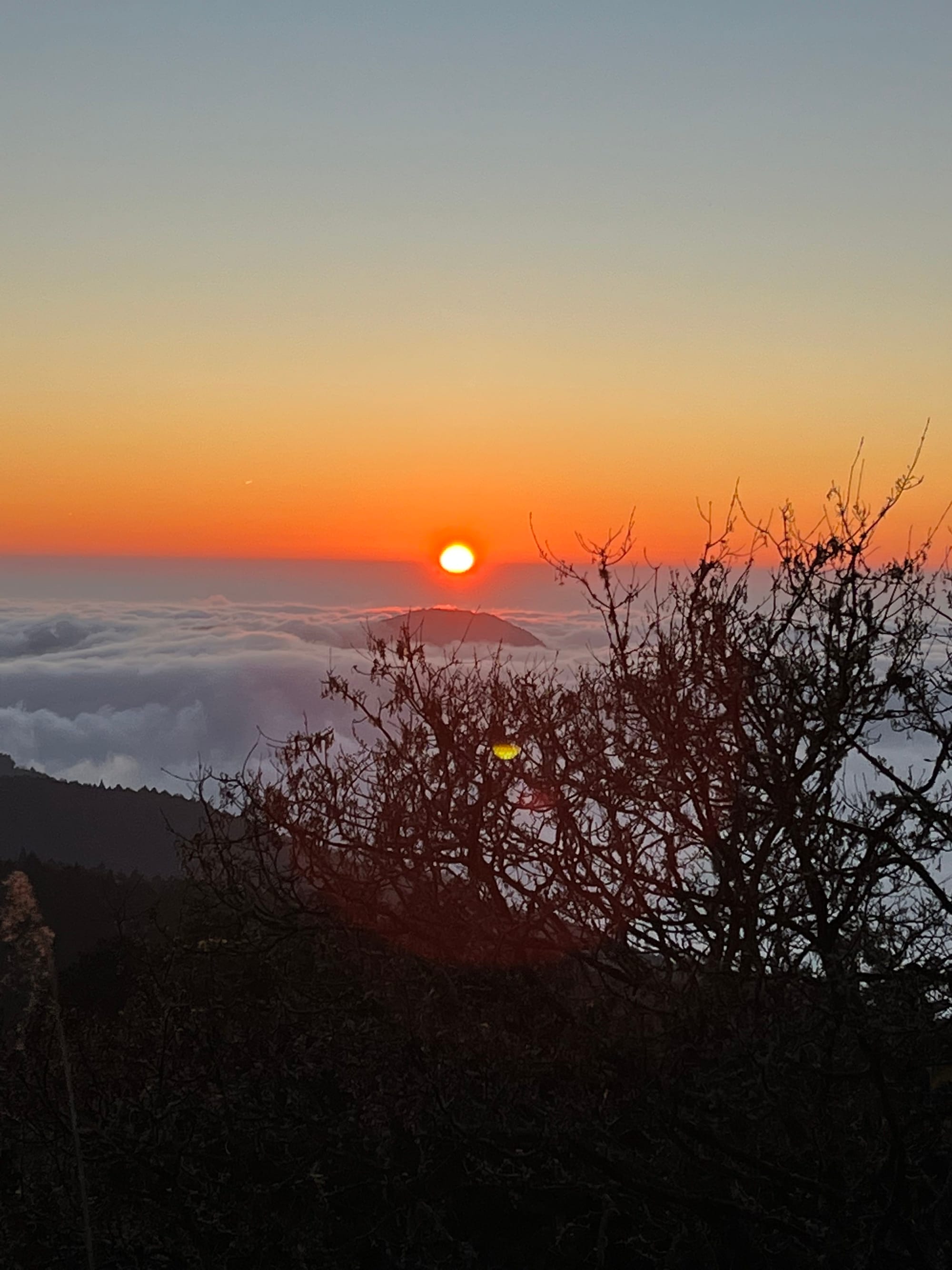
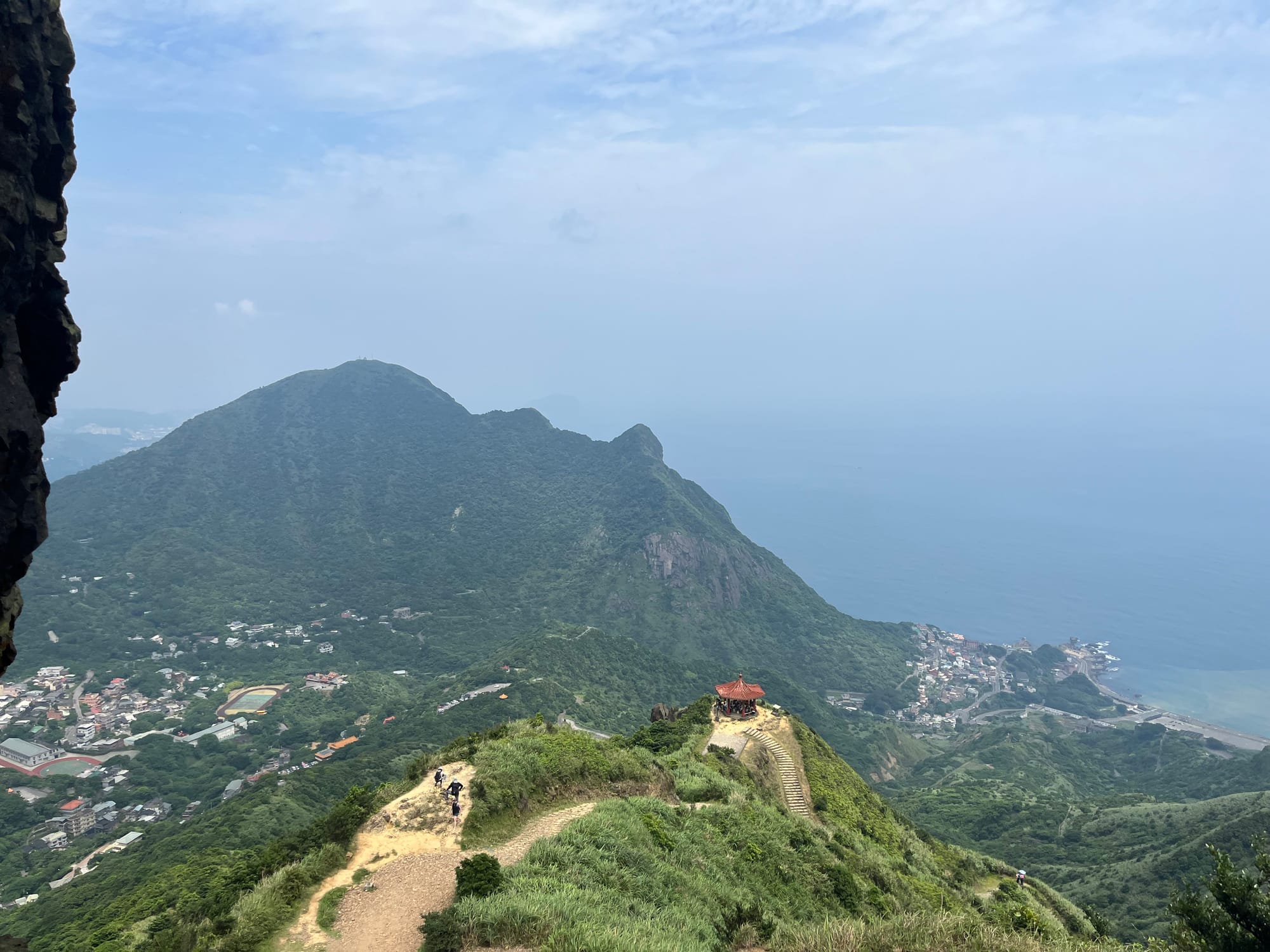

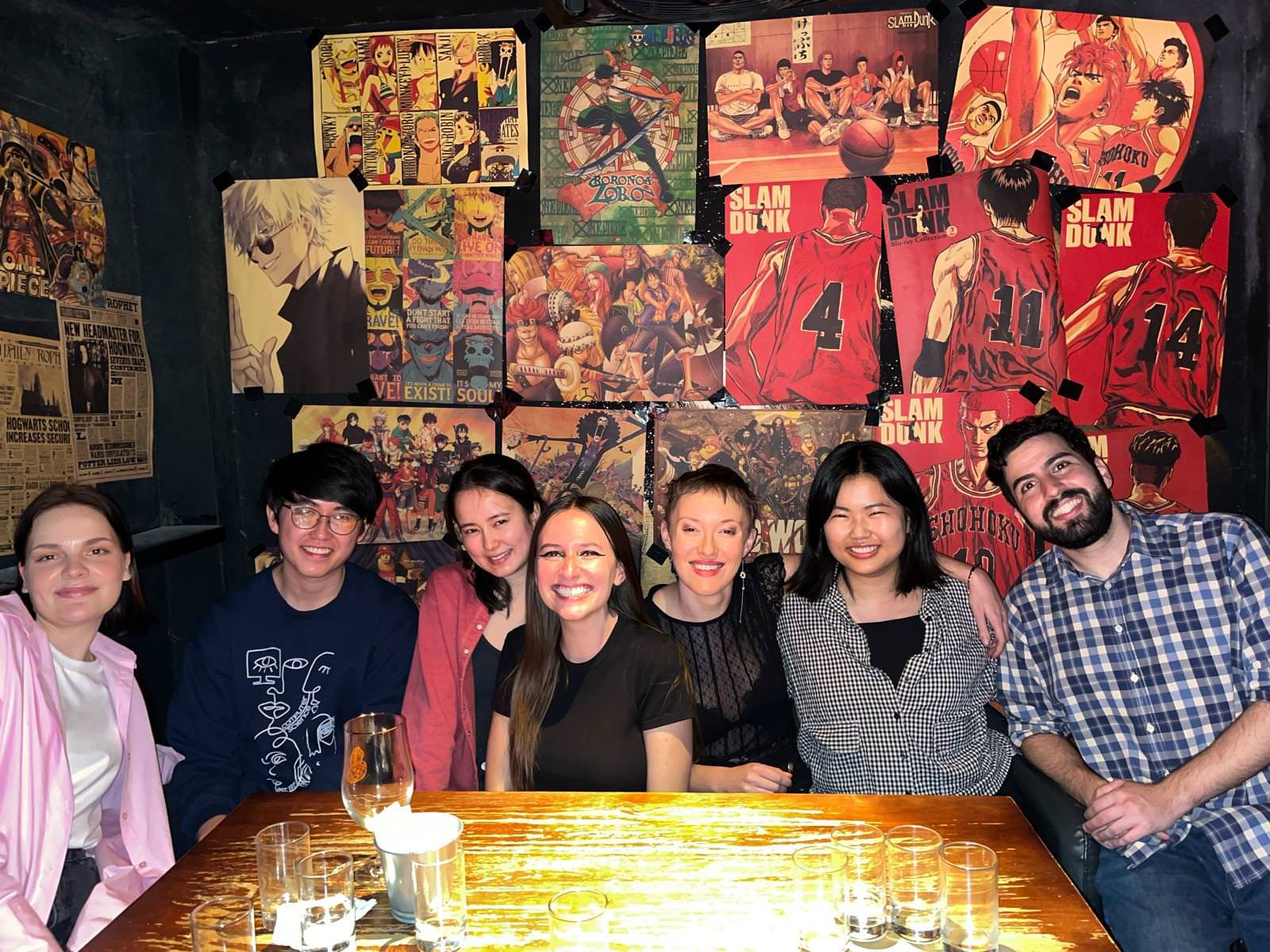
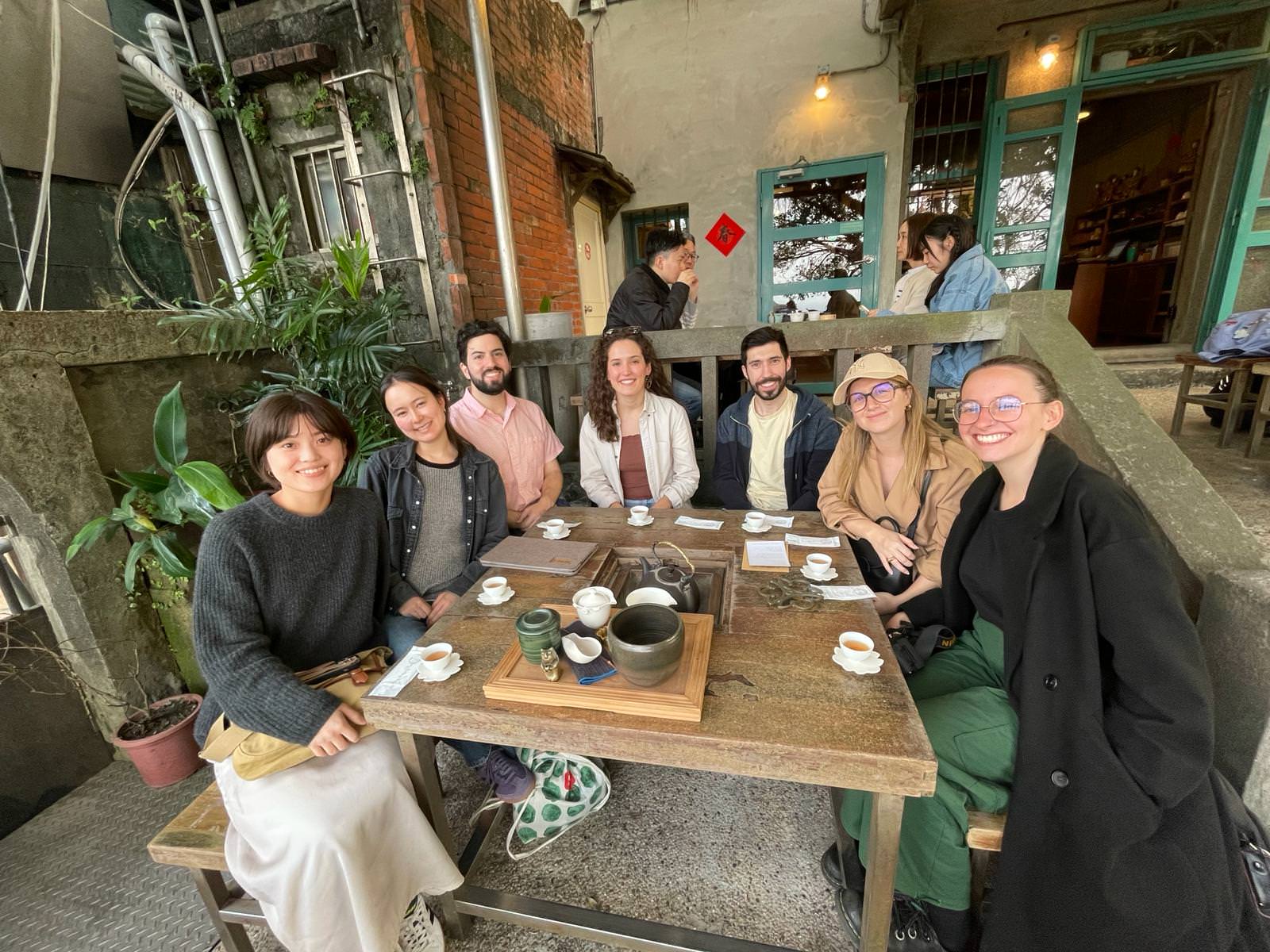
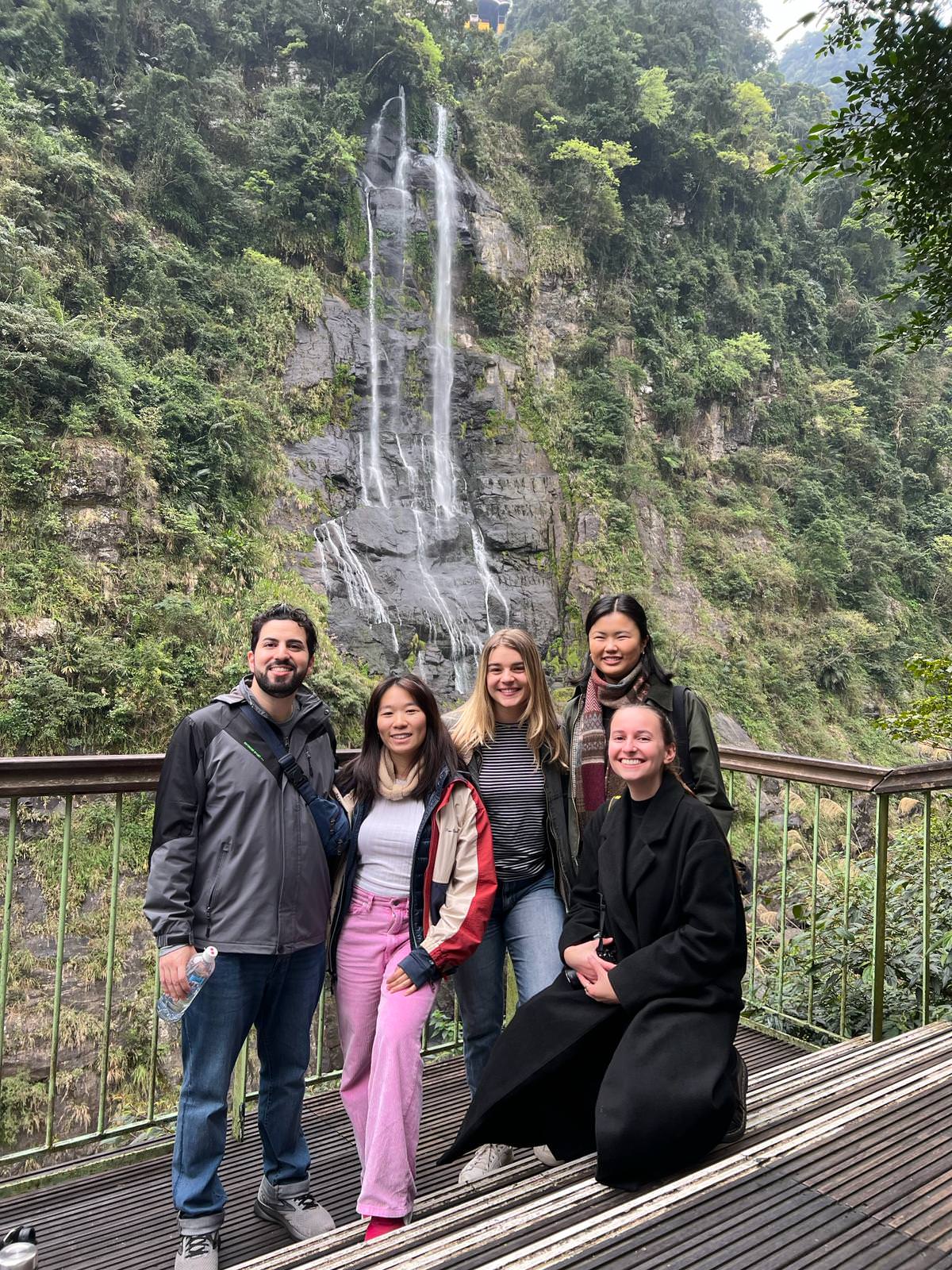
There is no escaping a discussion of politics when it comes to Taiwan. Arguing about politics is, as one teacher joked to me, Taiwan's "national pastime," and that doesn't even include confronting the core existential threat China poses to the island's fledgling democracy.
It's easy to get sentimental about Taiwan, what it's accomplished since democratizing, and what it stands to lose if China does move to annex it. I can't pretend that these concerns colored every conversation about politics in Taiwan, but they hovered around the edge. One teacher joked about moving to Canada in the event of an invasion. Another seemed resigned to Taiwan becoming like "Hong Kong, Tibet, or Xinjiang," another place robbed of its heritage, history, and freedom by the Chinese state.
Before going to Taiwan, I read obsessively about why China maintains such a core fixation on Taiwan. One of the best books I stumbled on was Emma Jinhua Teng's Taiwan’s Imagined Geography: Chinese Colonial Travel Writing and Pictures, 1683–1895, which addresses how Chinese writers and thinkers viewed Taiwan at the time of its absorption into the Qing empire in 1684. Taiwan barely registered in the eyes of Chinese elites, one of whom said, "Taiwan is merely a ball of mud beyond the seas, unworthy of development by China...It is a daily waste of imperial money for no benefit."
I couldn't help but return to Teng's book when I read the news late last month that the Chinese government was threatening the death penalty for pro-Taiwanese independence "diehards." As it does on nearly every public statement about this topic, China's ruling Communist Party, in announcing the new punishments, claimed that Taiwan is an "inseparable" part of Chinese territory.
Will there be any end to this morbid song-and-dance that accompanies every mild expression of identity by Taiwan, a place everyone knows to be a country but that, for however long China wills it, cannot openly say so. Under the threat of invasion, Taiwan has gone from one scholar's "ball of mud" to the contested jewel of several empires and, now, the site of a young, proud, still-raucous democracy. Its influence abounds in tech, food, movies, even drag. And yet, essays like this lyrical, poignant elegy to "Taiwan's potential demise," continue to be written. For all its advances and progress, Taiwan's gains are tenuous, contingent on whether China will ever decide to invade.
Before I came to Taiwan last year, I had a decent, if superficial, sense of all of this. What I didn't know was what it felt like to live in Taiwan, meet its different (and different-minded) people, and slowly begin to see the island as less of an abstraction and more like a second home. Because of the friends I made and the people I met, Taiwan will never just be a name in a textbook.
So, yeah! Travel is a boomerang. I am back where I started.
But I gained quite a lot along the way.
Dan
Washington, D.C.
July 27, 2024
One more thing: I am so grateful to everyone who has supported this little-newsletter-that-could throughout the past year. I have one edition left, an epilogue of sorts about my time in China. Stay tuned for that in the coming weeks! And thank you again for reading.
